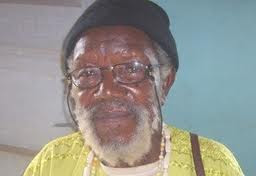October in the UK is a month celebrating the UK`s African and Caribbeans heritage. The Black History month. A full month of activities arranged and funded by the government, local government and some charities and volunteers donors.
There are always around the country where there are a presence of black and Caribbeans population activities such as workshops, exhibitions, movies, black film festival, music and drama.. This year Ms Diane Abbott, Archbishop John Sentamu and late Michael Jackson have been chosen as icon for the black and Caribbean people living in some areas in London.
But during this month, people often do not want to raise awareness or even acknowledge the fact that there are a huge number of black and Caribbean population in all the UK BA immigration removal and deportation and prisons centres in the UK. There are been considered during the celebration of the African and Caribbean heritage. Diane Abbott who is an Mp and represent his own constituent has not yet take or have time to visit these immigration reporting and removal centres.
There are record that she raises the case at the House of Commons regarding a crowing number of blacks in prisons .According to Randeep Ramseh from the Guardian, <.....The proportion of black people in prison in England and Wales is higher than in the United States, a landmark report released today by the Equality and Human Rights Commission reveals.
The commission's first triennial report into the subject, How Fair is Britain, shows that the proportion of people of African-Caribbean and African descent incarcerated here is almost seven times greater to their share of the population. In the United States, the proportion of black prisoners to population is about four times greater.
The report, which aims to set out how to measure "fairness" in Britain, says that ethnic minorities are "substantially over-represented in the custodial system". It suggests many of those jailed have "mental health issues, learning disabilities, have been in care or experienced abuse".Experts and politicians said over-representation of black men was a result of decades of racial prejudice in the criminal justice system and an overly punitive approach to penal affairs.
"People will be and should be shocked by this data," said Juliet Lyon, director of the Prison Reform Trust. "We have a tendency to say we are better than the US, but we have not got prison right." Lyon said that although there had been "numerous efforts to address racism in the prison system Š we have yet to get a better relationship between justice authorities and black communities.
Instead we have ended up with mistrust breeding mistrust."Evidence of this damaged relationship can be found in the commission's report. On the streets, black people were subjected to what the report describes as an "excess" of 145,000 stop and searches in 2008. It notes that black people constitute less than 3% of the population, yet made up 15% of people stopped by police.
The commission found that five times more black people than white people per head of population in England and Wales are imprisoned. The ethnic minority prison population has doubled in a decade - from 11,332 in 1998 to 22,421 in 2008. Over a similar period, the overall number of prisoners rose by less than two thirds.
The commission says that the total number of people behind bars accelerated in the last decade despite "a similar number of crimes being reported to the police as in the early 1990s Š the volume of indictable offences has fallen over this time".A quarter of the people in prison are from an ethnic minority.
Muslims now make up 12% of the prison population in England and Wales.Some on the left of the Labour party blame its policies while in power. Diane Abbott, who raised the alarm over the growing numbers of jailed black men as a backbencher, said she "very much regretted that the last Labour government swallowed [former home secretary] Michael Howard's line that 'prison works'.
""There was never a serious examination of the consequences of locking up a generation of young black men. The result is there are some prisons in the south east which are now virtually all black. Many are converting to Islam.
"The problems may start at school. The commission points out that black children are three times as likely to be permanently excluded from education."We are reaping the effects of criminalising a community in the 1970s," says Ben Bowling, professor of criminal justice at Kings College London and a former adviser to the home affairs select committee.
"The question is how you break the cycle when young men experience custody. Three quarters simply re-offend. We have to intervene with families more effectively to stop kids going to prison. That means looking at school exclusions. You need to deal with issues like mental health and substance abuse. It is not enough to throw our hands in the air.
"The policies implemented in the last decade mean incarceration levels in Britain are now among the highest in western Europe. England and Wales have an imprisonment rate of 155 per 100,000 and Scotland of 149 per 100,000 of the population. This contrasts with rates of less than 100 per 100,000 for most of Britain's neighbours.
Instead of celebrating, performing African and Caribbean dances, playing football or signing like ancestors in front of masters, the bravura of the death, it is time now to reflect on and to talk about now about how to reduce the growing number of blacks in detention and prison centres in the UK.



























